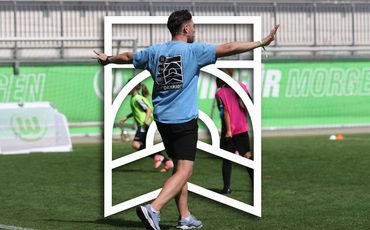What Is a Coaching Philosophy and Why Does It Matter?
Whether we realise it or not, every coach operates with a set of values, beliefs, and motives that shape how they work. This personal framework is known as a coaching philosophy—a guiding compass that influences every decision, interaction, and approach in your coaching journey.
Understanding Your Coaching Philosophy
At its core, a coaching philosophy is your unique perspective on what coaching is about and how it should be done. It’s built on three key elements:
- Values – These are the principles that matter most to you, such as respect, honesty, equality, or teamwork.
- Beliefs – These are your ideas about how things should work, from how children should behave to how authority and discipline are handled.
- Motives – These are your reasons for coaching. Are you driven by a love of sport, a desire to help children grow, or simply filling in as a volunteer?
Together, these elements shape your approach to coaching—whether you’re aware of it or not.
A Real-Life Example
Take Helen Thompson-Coleman, an athletics coach who shared her philosophy in a video from Griffith University. While she admits that having an Olympic champion credit her as an inspiration would be amazing, her true goal is to inspire as many children as possible to enjoy being active. For her, lifelong participation and confidence in physical activity are as valuable as any gold medal.
This philosophy is clear, child-centred, and rooted in long-term impact rather than short-term success.
Why Your Philosophy Matters
Research shows that coaches with a well-defined philosophy are more effective and fulfilled. Here’s why:
- Clarity and Motivation – Knowing what drives you helps you stay motivated and proactive.
- Better Decision-Making – A strong philosophy helps you answer tough questions like, “What should I do now?” with confidence and consistency.
- Stronger Relationships – Players and parents understand where you stand, leading to trust and better outcomes.
- Continuous Improvement – A clear philosophy allows you to reflect critically on your practice and grow as a coach.
Start Defining Yours
To begin shaping your coaching philosophy, ask yourself:
- Why do I coach?
- What is the purpose of sport for children?
- What is the core of my job as a children’s coach?
- How do I define success?
- What are my core values?
Then go deeper:
- What are my ethical standards?
- Who holds the power in the coach-participant relationship?
- There are no right or wrong answers—just honest reflection. The more clarity you gain, the more effective and impactful your coaching will be.
Watch the Full Video below
Comments
Related Pages


